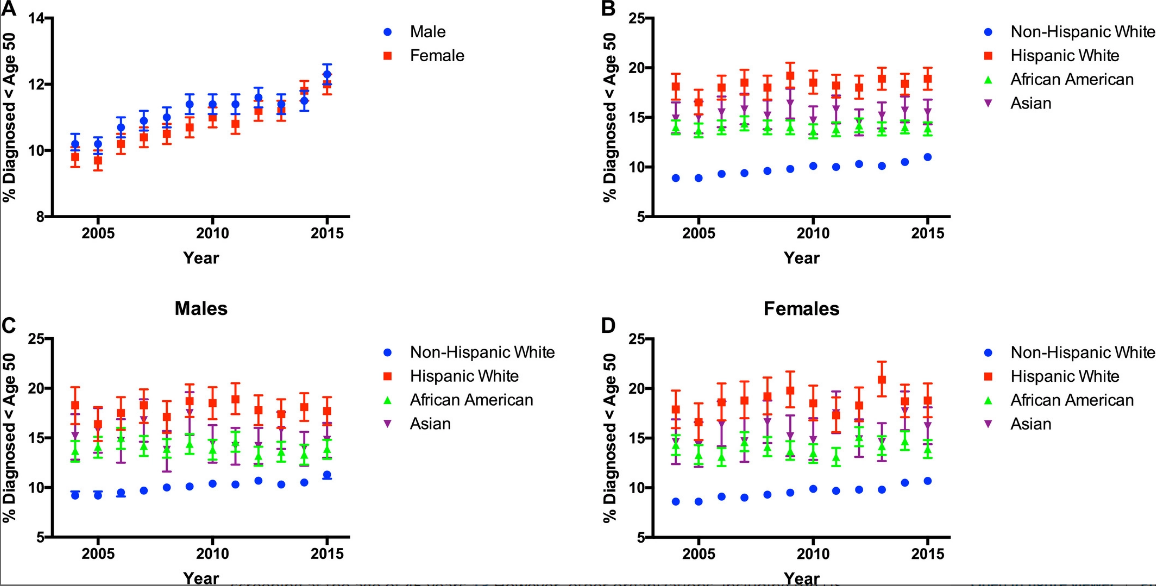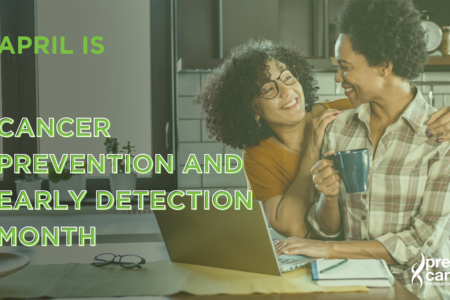
Share On Social!
Rates of colorectal cancer, found in the colon or rectum, are on the rise among American adults under the age of 50.
A new study, published the American Cancer Society’s peer-reviewed journal CANCER, discovered that the disease is impacting more and more young people by using data from the National Cancer Database registry. The research group, led by Dr. Boone Goodgame of The University of Texas at Austin, examined the data of over 1,185,763 patients.
“Several studies have shown that the rates of colorectal cancer in younger adults have risen slowly in the US since the 1970s, but for practicing physicians, it feels like we are seeing more and more young people with colorectal cancer now than we were even 10 years ago,” Goodgame, told Wiley.
What were their Findings?
Researchers identified 130,165 patients diagnosed at an age younger than 50 years and 1,055,598 patients diagnosed at the age of 50 years or older between 2004 to 2015.

The study discovered that the number of American adults diagnosed with colorectal cancer under age 50 has persistently increased over the past decade, rising from 10% in 2004 to 12.2% in 2015.
Worse, the lack of preventive testing is making an impact on this issue.
“Until just last year, guidelines recommended colon cancer screening beginning at 50,” Goodgame said. “Now, many guidelines do recommend screening at age 45, but most physicians and patients don’t appear to be following those recommendations.”
Additionally, 51.6% of those under 50 were diagnosed with more advanced stages of colorectal cancer—stage 3 to 4—compared to 40% of those over the age of 50.
Black adults and Latina women under 50 also showed higher rates of colorectal cancer than non-Hispanic whites under 50.
Why Are Rates Rising?
Recent research from the American Cancer Society found that obesity-related cancers, such as colon, are on the rise in young adults ages 25-49.
In Latinos, men and children especially face issues concerning healthy eating and obesity.
Other factors linked to colon cancer include:
- Sedentary lifestyle
- Lack of exercise
- Processed meat
The causes behind increasing rates of colorectal cancer in those under 50 is still unclear. However, Dr. Goodman said that new research indicates that it could be due to a mixture of increases in body weight and changes in gastrointestinal bacteria.
While there are some ideas of why colon cancer rates are increasing, researchers do note that more research is needed.
“It is therefore imperative that the various hypotheses for increasing colorectal cancer incidence among people younger than 50 be rigorously tested to determine if changing the current screening age in people who are not at increased familial risk represents the most appropriate public health response,” Dr. Chyke Doubeni of the University of Pennsylvania wrote in an accompanying editorial.
Colon Cancer Prevention
Shockingly, one in 12 U.S. cancer cases is caused by being overweight or obese. However, obesity is one of the most preventable causes of cancer.
In recent history, Latinos have struggled with these issues, according to 2017 CDC data:
- Latino adults were more obese (47%) than their Black (46.8%), White (37.9%), and Asian (12.7%) peers.
- Latino children also were more obese (25.8%) than their Black (22%), White (14.1%), and Asian (11%) peers
- One in four Latinos are now obese, regardless of age
Latinos can reduce obesity’s influence in their life, and take steps to reduce risks of cancer through healthy eating, frequently exercising, and drinking plenty of water.
Want to make a healthy change in your community?
Get inspired by our Salud Heroes:
- Start a Community Garden, like Jorge Olvera
- Raheem Baraka – Health is a civil rights issue.
- Latina helps bodegas push for healthier foods.
- Latina Starts School Food Pantries.
- Cultivating health in a diverse neighborhood.
Explore More:
Latino CancerBy The Numbers
1
out of 10
Pedestrians survive when hit by a car at 40 MPH



